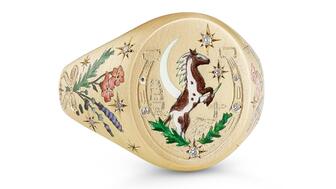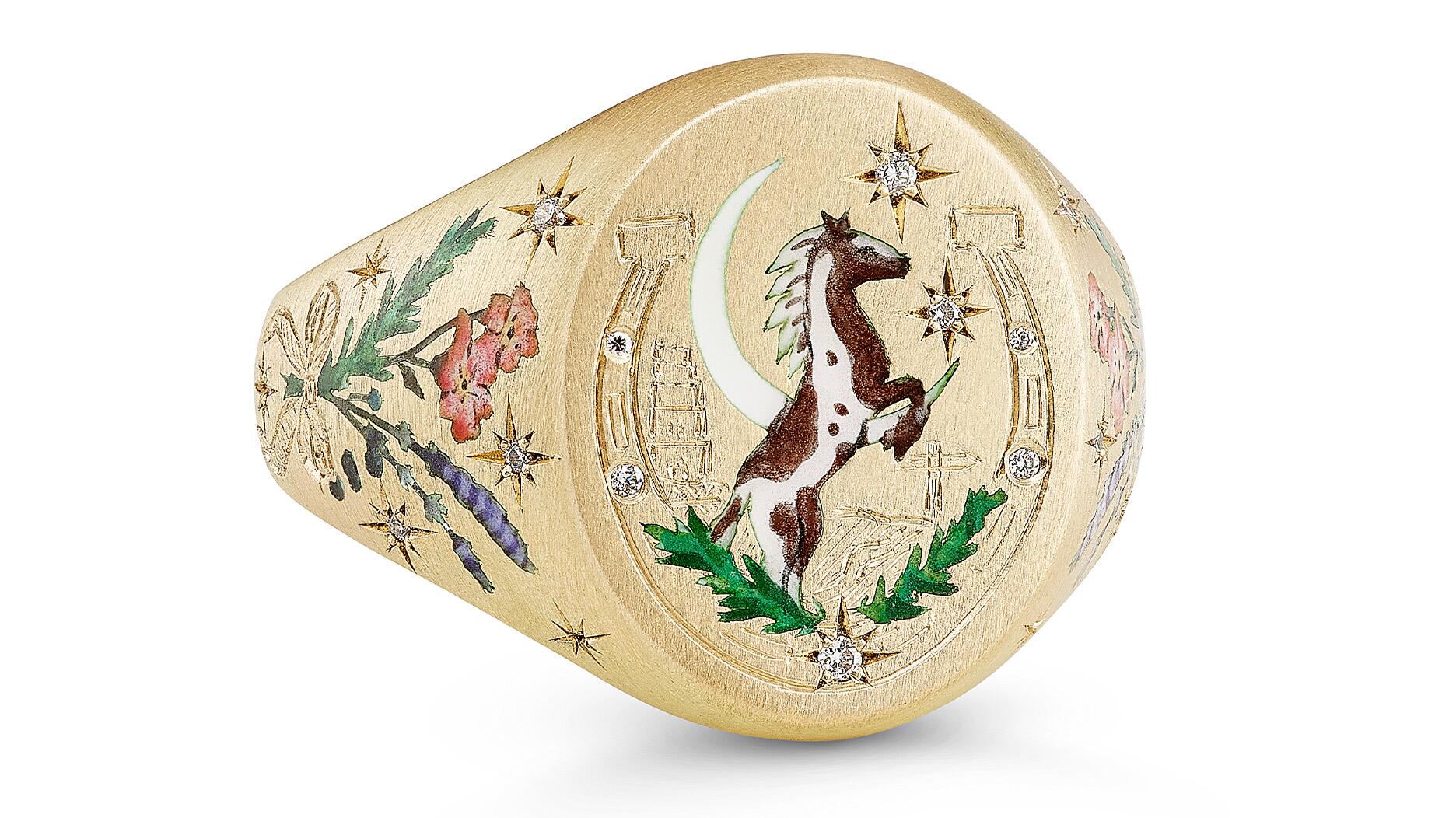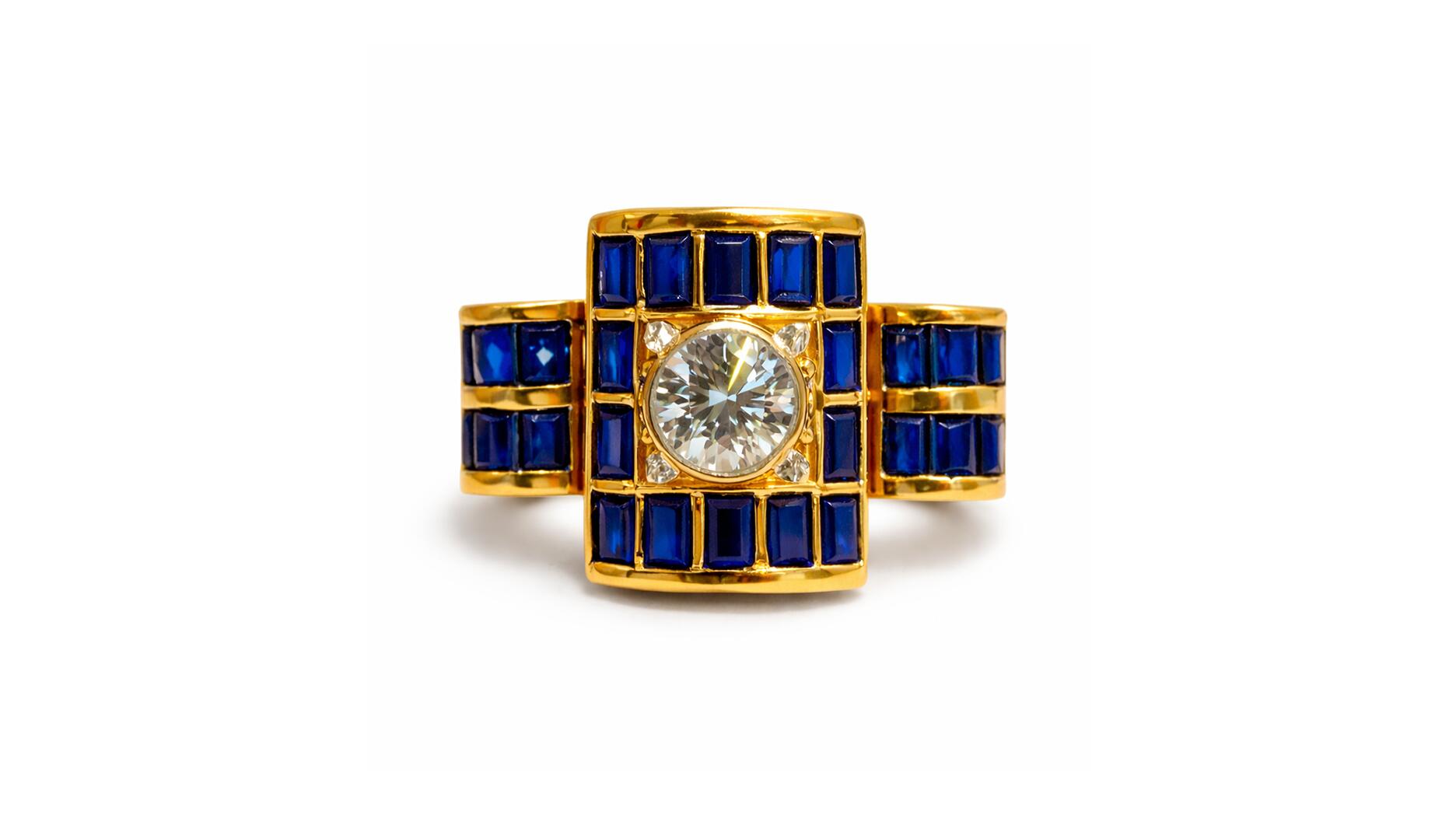In a 6-3 ruling, the court said the president exceeded his authority when imposing sweeping tariffs under IEEPA.
The History Behind … Micromosaic Jewelry
National Jeweler takes a deep dive into the style of antique jewelry in which thousands of tiny fragments of glass create a painting-like picture.

New York—One look at a high-quality piece of micromosaic jewelry and the labor and work that goes into it is immediately evident.
The antique style, reaching its pinnacle largely in 19th-century Italy, is a great example of jewelry as art, taking inspiration from traditional mosaics but in a scaled-down size.
“In my opinion, cameos and micromosaics are two of the greatest bargains in the jewelry business,” said Joe Murawski, founder of antique and estate jeweler Joden World Resources, because of the work that goes into them compared with their prices.
National Jeweler spoke with Murawski and Francesca Neri Serneri, one of the designers behind Italian brand Le Sibille, and consulted a number of online resources to learn more about the history behind micromosaic jewelry.
What is a Micromosaic?
Micromosaics are created from tiny fragments of tesserae, generally made from glass or enamel, set to form small pictures. Murawski described the size of the tesserae as being as little as the lead in a mechanical pencil (about 1 mm).
As all the sources and online resources noted, making a micromosaic is a painstaking process.
One common method includes melting glass, pulling it into thin rods or threads and then, after it cools, cutting it into tiny pieces that are then arranged on a copper or gold tray to create a scene, portrait or landscape. Many depict ancient Italian landmarks or scenes from nature such as animals or plants.
According to a post online from Lang Antiques, black Belgian marble also was carved and used as the background or base for micromosaics in the mid-19th century.
Whether metal or marble, mastic or cement was used to adhere the tesserae to the base as it was arranged into an image or scene.
Once that hardened, any gaps between the tesserae were often filled with colored wax. Then the image often was polished to give it a smooth and even surface, according to Lang Antiques.
According to the Gemological Institute of America, one square inch of micromosaic jewelry can have as many as 1,400 pieces of tesserae.
Murawski said some can have as many as 3,000 to 4,000, but most are comprised of hundreds of pieces of tesserae.
When and Where Did Micromosaic Jewelry Become Popular?
Italy is given much of the credit as the origin nation for micromosaics, and many agree that the style was refined and reached its peak in the 1800s,
According to Lang Antiques, micromosaics have links to the Vatican.
The Vatican Mosaic Studio opened in 1727 to convert some of the paintings in the city’s basilica to mosaics for preservation. There, artisans began to experiment with making tesserae into small, portable works of art.
Murawski also talked about the style’s link to the Vatican, noting that if someone made a substantial donation to the Catholic Church, the papal jeweler would make an image of them as cameo or micromosaic, or to create a nature-themed micromosaic for them.
Demand for this new style of mosaic also was then further helped along by the “Grand Tour,” an era in the 19th century in which aristocrats would take an extended trip around Europe, particularly France and Italy, to see the cultural and historical sites. They often wanted souvenirs their trips, making micromosaic jewels of sites and scenes the perfect keepsake.
Due to the high demand for the style in the 19th century, Lang said, an influx of workers migrated to Rome to make micromosaics but they weren’t skilled in the art and began making poor quality micromosaics that flooded the market and hurt the industry overall.
How Much Do They Cost?
According to Murawski, the price of a micromosaic jewelry can range pretty widely depending on their quality and the number of tesserae used.
He said they could be as low as $5 for those, say, made in brass with larger pieces of tesserae, while a “really fine example” from Italy using 5,000 pieces “can cost $25,000 quite easily.”
Murawski noted that some micromosaics have an inlay of black onyx around the base—likely just to give the colors in the scene more contrast—but added those are easier to make than the micromosaics in which the glass is affixed directly to the metal and also aren’t quite as rare, making them a little more affordable.
What Is the Market for Micromosaics Today?
“The people that like (micromosaics), love it,” Murawski said. “The people that don’t care about it, don’t care at all about it.”
He added that many people who come into the Joden store in Grove City, Pennsylvania, enjoy looking at it the pieces even if they don’t buy any.
Joden World Resources carries the real antique deal. But some contemporary fine jewelry brands and designers make micromosaic pieces too.
Gurhan is one such brand, adding mosaics to its existing collections.
Two modern Italian brands are also making the micromosaic their business.
Rome-based jewelry brand Le Sibille and its three founders want to bring back the style of Renaissance workshops, and one way they’re doing that is through their contemporary micromosaic line.
They take inspiration from the very art they studied, except Le Sibille doesn’t grind the piece down to make them flat, as many of the antique pieces were, the brand’s Neri Serneri said.
Meanwhile, Ravenna, Italy-based Sicis Jewels developed a department for micromosaic jewels after a decade of historical and bibliographic research about the art form.
They have taken the ancient techniques and applied them to goldsmithing and contemporary jewels, including a line of high jewelry that uses tesserae.
{embed 407}
The Latest

Smith encourages salespeople to ask customers questions that elicit the release of oxytocin, the brain’s “feel-good” chemical.

JVC also announced the election of five new board members.
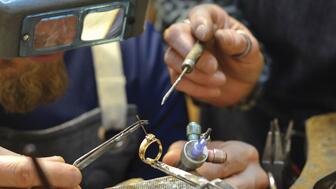
Launched in 2023, the program will help the passing of knowledge between generations and alleviate the shortage of bench jewelers.
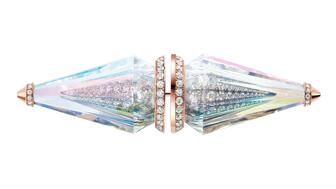
The brooch, our Piece of the Week, shows the chromatic spectrum through a holographic coating on rock crystal.


Raised in an orphanage, Bailey was 18 when she met her husband, Clyde. They opened their North Carolina jewelry store in 1948.

Material Good is celebrating its 10th anniversary as it opens its new store in the Back Bay neighborhood of Boston.

Criminals are using cell jammers to disable alarms, but new technology like JamAlert™ can stop them.
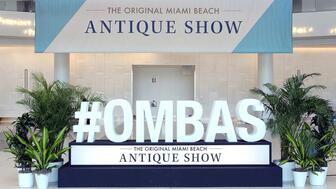
The show will be held March 26-30 at the Miami Beach Convention Center.
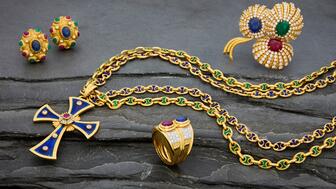
The estate of the model, philanthropist, and ex-wife of Johnny Carson has signed statement jewels up for sale at John Moran Auctioneers.

Are arm bands poised to make a comeback? Has red-carpet jewelry become boring? Find out on the second episode of the “My Next Question” podcast.
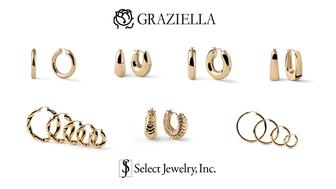
It will lead distribution in North America for Graziella Braccialini's new gold pieces, which it said are 50 percent lighter.
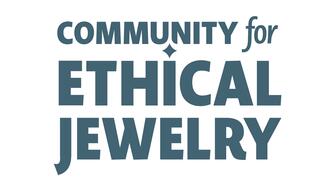
The organization is seeking a new executive director to lead it into its next phase of strategic growth and industry influence.

The nonprofit will present a live, two-hour introductory course on building confidence when selling colored gemstones.
![A peridot [left] and sapphires from Tanzania from Anza Gems, a wholesaler that partners with artisanal mining communities in East Africa Anza gems](https://uploads.nationaljeweler.com/uploads/cdd3962e9427ff45f69b31e06baf830d.jpg)
Although the market is robust, tariffs and precious metal prices are impacting the industry, Stuart Robertson and Brecken Branstrator said.

Rossman, who advised GIA for more than 50 years, is remembered for his passion and dedication to the field of gemology.

Guthrie, the mother of “Today” show host Savannah Guthrie, was abducted just as the Tucson gem shows were starting.

Butterfield Jewelers in Albuquerque, New Mexico, is preparing to close as members of the Butterfield family head into retirement.
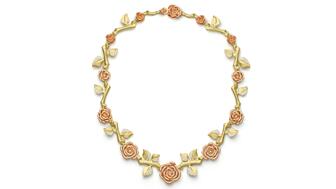
Paul Morelli’s “Rosebud” necklace, our Piece of the Week, uses 18-karat rose, green, and white gold to turn the symbol of love into jewelry.

The nonprofit has welcomed four new grantees for 2026.

Parent company Saks Global is also closing nearly all Saks Off 5th locations, a Neiman Marcus store, and 14 personal styling suites.
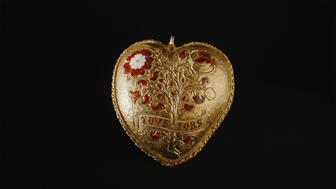
It is believed the 24-karat heart-shaped enameled pendant was made for an event marking the betrothal of Princess Mary in 1518.
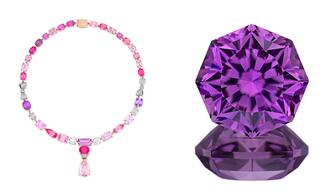
The AGTA Spectrum and Cutting Edge “Buyer’s Choice” award winners were announced at the Spectrum Awards Gala last week.

The “Kering Generation Award x Jewelry” returns for its second year with “Second Chance, First Choice” as its theme.
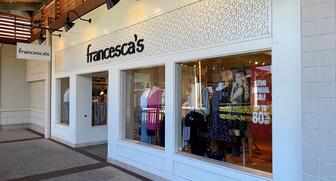
The clothing and accessories chain announced last month it would be closing all of its stores.

The “Zales x Sweethearts” collection features three mystery heart charms engraved with classic sayings seen on the Valentine’s Day candies.

The event will include panel discussions, hands-on demonstrations of new digital manufacturing tools, and a jewelry design contest.



